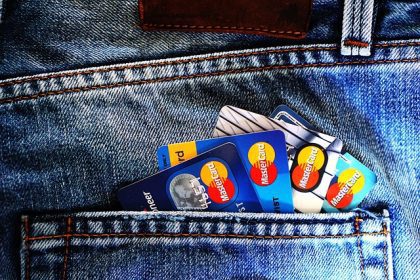Hopefully, this guide isn’t something you will ever need. But, in case it happens, you still have options to get through it and being aware of opportunities that can help you get back on your feet can often be a life saver. Some of the information here might be a given, but there are a few things you likely will overlook.
We all know that losing your job isn’t just a financial hit, it’s a earthquake on your mental health. You’ve got an emergency fund, but draining it feels double edged as you watch your safety net fray. Let’s talk about real moves to stretch that cash, buy time, and keep stress in check.
1. Slash Your Subscriptions
Your Netflix and gym memberships? They’re bleeding your fund dry. They are also distractions that move you away from getting back on your feet.
Do this now:
- Cancel everything: Spotify (£10.99/month), Deliveroo Plus (£7.99/month), premium apps, even that £5/month cloud storage, it all adds up. If you forget something, try logging into your bank and hunting down those hidden money bandits.
- Keep one “mental health” splurge: If you can afford one subscription that keeps your mood up, do it! Some people pick things like the £10/month for Kindle Unlimited. Let yourself binge-read trashy novels.
- Essentials: Keep the things that will help you get back on your feet like your internet.
Pro tip: Use Money Boat as a great place to start to find hidden subscriptions. I found £28/month in charges I’d have forgotten.
2. Turn Your Investing Portfolio Into a Cash Machine
Selling investments in a panic sucks. Instead:
- Pause dividend reinvestment: Redirect cash back into your bank (that was the ultimate goal but use it now while you absolutely need it).
- Tweak your holdings: Swap growth stocks for high-yield ETFs (like VHYL) temporarily. Earn 4-5% in dividends vs. 1% in savings.
- Sell ETF growth funds: If stocks don’t pay you dividends, you could utilise the high growth ETFs in your portfolio by selling off what you need as an emergency fund. You can always re-buy into them when you are back on your feet.
Example:
- £25k portfolio → £1k/year in dividends.
- Combined with a £5k emergency fund, this buys you 3 and a half extra months (how far it stretches will vary depending on where you live)
- A rough area estimation of expenses for different cities in the UK at this link.
Warning: With stocks, don’t chase yield. Stick to blue-chip dividend payers (Shell, Unilever).
3. Negotiate Bills Like a Pro
Suppliers will usually be more generous and work with you—if you ask.
What to say:
- Mortgage/rent: “I’ve lost my job. Can I defer payments for 3 months?”
- Banks: “Mortgage holiday” options exist.
- Landlords: Offer 50% rent now, 50% later.
- Utilities: “I need a payment plan.”
- Council tax: Apply for a reduction—unemployed? You could get 100% off. Start at GOV.UK.
Script: “I’m a long-term customer. Can we arrange temporary relief while I job hunt?”

4. Sell the Junk You’ve Been Ignoring
Your clutter is a hidden emergency fund.
Quick flips:
- Tech: Old Samsung Galaxy? £50-£150 on eBay.
- Clothes: Got ASOS leftovers? Vinted pays out in 48 hours—£20 for a decent jacket.
- Furniture: That IKEA chair? Facebook Marketplace shifts it fast—£30 same-day pickup.
- Flip for profit: Snag freebies from Freecycle, craigslist, facebook marketplace for a small gain (e.g., a lamp), spruce it up, sell for £15 on eBay.
My haul: Sold a dusty PS4, 3 sets of furniture, and an old bike for £420. Funded 2 months of groceries.
5. Side Hustles That Don’t Suck
Avoid Uber driving (depreciation kills profits). Try:
- Freelance skills: Got a knack for writing or Excel? Upwork gigs start at £15/hour—£500/month is doable with 10 hours/week.
- Dog walking: Rover pays £10-£20/walk. 3 walks/week = £150/month.
- Mystery shopping: Market Force offers £8-£15/job + free coffee or lunch.
Golden rule: Track time vs. pay. Aim for £15+/hour.
6. Tap Into Free Resources
You’re not alone:
- Food banks: Trussell Trust hands out 3-day parcels—no shame, just survival.
- Council tax relief: Unemployed? Slash your bill to £0 via GOV.UK.
- Skills boost: National Careers Service offers free CV help and courses.
- Learning: Library card = free LinkedIn Learning. Skip £200 “career coaches.”
Avoid this: Paying for job coaching. LinkedIn Learning is free with library membership.
7. Micro-Gigs for Instant Cash
Need £50 by Friday? Micro-tasks can help you find small funds to cover early onset bills.
- Surveys: Swagbucks pays £5-£10/day for 30 mins of opinions. Cash out via PayPal.
- App testing: UserTesting gives £8/20-min test. 3 tests = £24.
- Odd jobs: TaskRabbit—assemble IKEA furniture for £20/hour.
Remember: None of this will replace a salary, but £100/week buys breathing room.
8. Rent Out What You’ve Got
Got spare stuff? Monetise it!
- Storage: Stashbee—rent your garage for £100/month.
- Room: SpareRoom—list a spare bedroom for £400-£800/month or whatever price is suitable for your area (London’s pricier).
- Car: Turo—rent your idle Fiesta for £20/day. £200/month if used 10 days.
The “Keep Your Sanity” Budget
| Category | Monthly Allowance |
|---|---|
| Groceries | £150 |
| Utilities | £100 |
| Transport | £30 (bus pass) |
| “Fun Money” | £50 |
Why it works: £50 for pub nights or takeout stops resentment. You’re human, not a robot.
Mistakes You Can Make
- Ignore mental health: Big mistake—stress can tank a job hunt. Do your best to stay positive and talk to people.
- Over-optimising: If you spend 10 hours/week couponing to save £20. You will do yourself a disservice. Time > money.
- Isolating: Cancelling all social plans. Feeling ashamed. Bad move, friends may help you out, buy you a coffee, send you job leads. Do what you can!
Your Action Plan
- Day 1: Cancel subs, call suppliers, sell 3 items.
- Day 3: Adjust portfolio for income.
- Weekly: Apply for 10 jobs, do 2 side gigs, 1 “fun” activity.
Government Support: UK Government Guide and Links for Financial assistance.
Useful article on mastering your finance. Feel free to also check out my “freebies” if they help support you.
Not financial advice. I eat cereal or beans on toast for dinner sometimes.
















